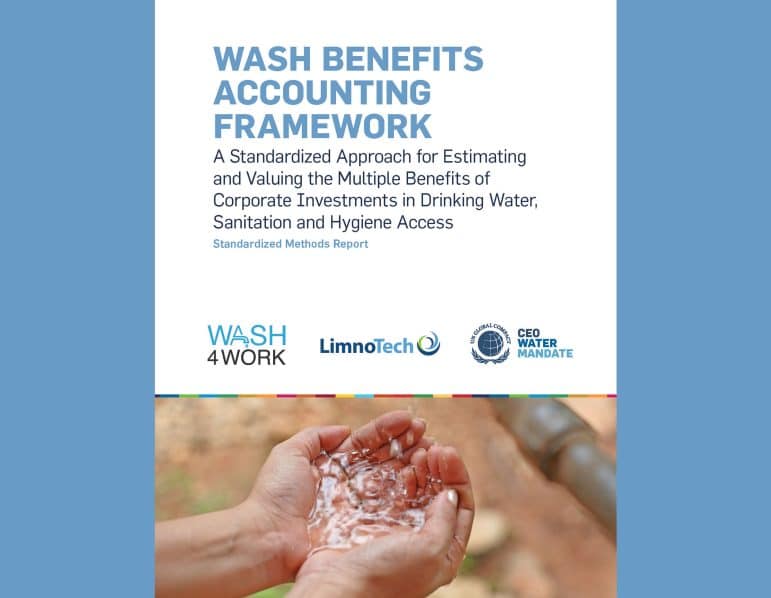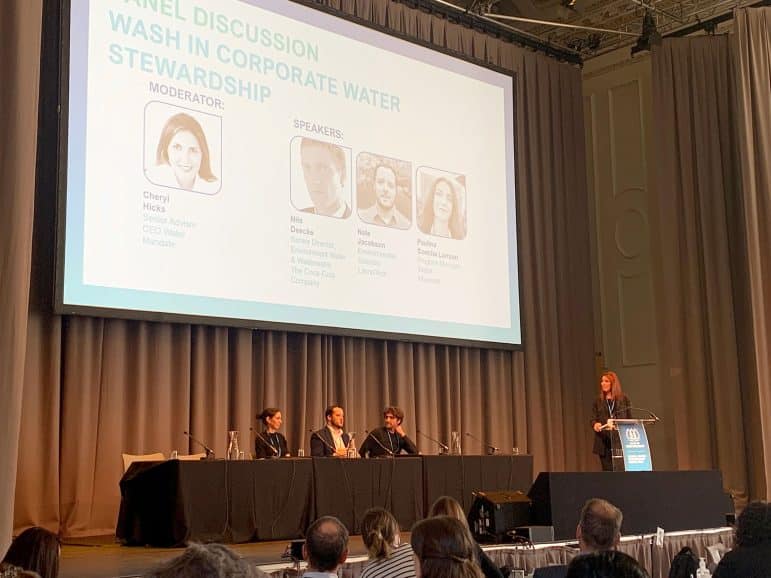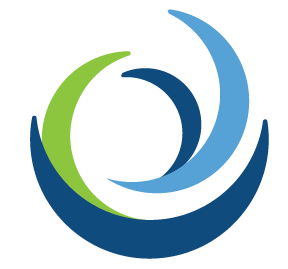
WASH Benefits Accounting Framework
A Standardized Approach for Estimating and Valuing the Multiple Benefits of Corporate Investments in Drinking Water, Sanitation and Hygiene Access.
By Nate Jacobson, Environmental Scientist (Ann Arbor, MI)
June 18, 2024
WASH4WORK, the CEO Water Mandate, and LimnoTech recently announced the launch and release of the “WASH Benefits Accounting Framework” at the 2024 AWS Global Water Stewardship Forum in Edinburgh, Scotland. This standardized accounting framework is designed to help companies calculate and communicate the socioeconomic, environmental, and institutional benefits of investments in safely managed and climate-resilient WASH (Drinking Water, Sanitation, and Hygiene) services.

This standardized accounting framework (hereafter Framework) for corporate WASH outputs, outcomes, and impacts advances the leading practice for alignment with corporate water stewardship goals and provides indicators and methods to account for the multiple benefits of water stewardship activities. The Framework can be used to assess the effectiveness of WASH interventions, calculate the value of investments to mitigate the increasing business risks of unsafe WASH, and drive continuous improvements.
“Ensuring safely managed and climate-resilient drinking water, sanitation and hygiene access (WASH) for employees and workers— at work and home—can yield multiple benefits across communities, businesses, and their supply chains.”
C. Hicks, N. Jacobson, W. Larson, G. Brill, and G. Moreira (2024)
The Framework summarizes steps for corporate use, which include:
(1) Understand WASH risks and identify gaps in WASH access;
(2) Define WASH project goals, activities, and partners;
(3) Select WASH benefits indicators and methods; and
(4) Gather project data and calculate WASH benefits.
The Framework has been designed to harmonize existing approaches used by corporates, NGOs, and the SDGs, as well as for consistency with other corporate water stewardship benefit accounting approaches, such as Volumetric Water Benefit Accounting, Nature-Based Solutions Benefit Accounting, and the upcoming Water Quality Benefit Accounting. It provides practical yet detailed calculation methods for core indicators (e.g., number of beneficiaries, proportion of people with access to basic services, reduced incidence of waterborne diseases), which are considered current leading practice. It also introduces and provides brief guidance for calculating advanced indicators (i.e., number of indirect beneficiaries, increased ability to adapt to climate-related events, reduced employee workplace absenteeism), indicating areas of emerging leading practice.
To learn how this framework can support your company in making impactful WASH investments, download and read the summary and the standardized methods reports.
Authors include Cheryl Hicks (WASH4Work), Nate Jacobson (LimnoTech), Wendy Larson (LimnoTech), Gregg Brill (CEO Water Mandate), and Giuliana Moreira (WASH4Work).
Project sponsors for this work include The Coca-Cola Company, Diageo, Microsoft, Orbia, Reckitt, and Water.org.
If you have any questions about the “WASH Benefits Accounting Framework,” you can reach out to Nate Jacobson at njacobson@limno.com.
This article is the ninth in a series of articles authored by LimnoTech staff on water stewardship. Follow us on LinkedIn and check our website’s Insights & Perspectives page for more information and updates.
Links to the other water stewardship articles in this series are provided below:
The Alliance for Water Stewardship Standard – Framing a Decade of Water Stewardship
Understanding and Engaging Water-Related Stakeholders
Assessing Water-Related Risk As A Foundation For Stewardship
Success Strategies for Developing a Site Water Stewardship Plan within the AWS Standard Framework
Strong Site Teams Lead To Successful Water Stewardship
Supporting the Implementation of Nature-Based Solutions
Nate Jacobson is an Environmental Scientist with expertise in corporate water stewardship and sustainability, biological services, stormwater management, and data management and analysis. Since joining LimnoTech in 2015, Nate has worked on a wide variety of projects for many different client sectors, including project scoping and volumetric water benefit quantification, water risk assessments, water stewardship plan development, and stakeholder mapping. Nate is a Professionally Credentialed Specialist Consultant for applying the AWS Water Stewardship Standard and has worked both in implementing and auditing the standard.
The content herein is the author’s opinion and not published on behalf of the Alliance for Water Stewardship (AWS). The author holds an AWS Professional Credential and this piece of publishing helps fulfill their Continuing Contribution Units requirements. For more information about AWS or the AWS Professional Credentialing Program please visit https://a4ws.org/.




